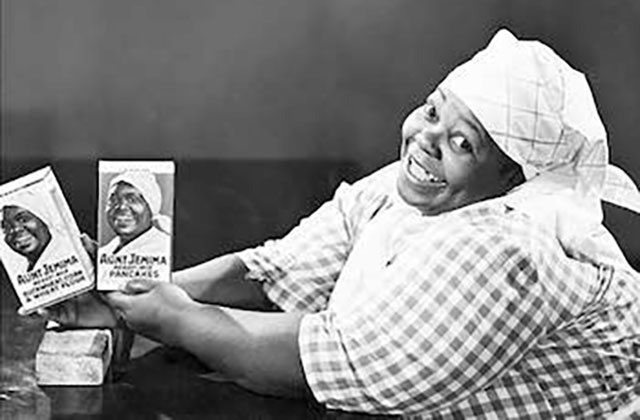Aunt Jemima, which many say has perpetuated minstrel stereotypes for over a century, announced they will finally lose the image and the name, NBC News first reported today (June 17).
A ubiquitous presence in pancake and syrup store aisles, Aunt Jemima was inspired by Nancy Green in 1890, and is described in the company’s historical timeline as a storyteller, cook and missionary worker. However, their timeline doesn’t mention that Green was born a slave in Montgomery County, Kentucky and that the famous recipes weren’t even hers, according to African American Registry. She was the very first corporate model.
After the Quaker Oats Company bought the brand in 1926 (PepsiCo owns it now), different Black women have portrayed Aunt Jemima in different ways over the years. From wearing a “mammy” kerchief in the early days to the soft brown curls and lighter complexion that she currently dons, the representation has been called a racist stereotype for decades.
In a statement released today, Kristin Kroepfl, vice president and chief marketing officer of Quaker Foods North America, said:
As we work to make progress toward racial equality through several initiatives, we also must take a hard look at our portfolio of brands and ensure they reflect our values and meet our consumers’ expectations. We recognize Aunt Jemima’s origins are based on a racial stereotype. While work has been done over the years to update the brand in a manner intended to be appropriate and respectful, we realize those changes are not enough … We are starting by removing the image and changing the name. We will continue the conversation by gathering diverse perspectives from both our organization and the Black community to further evolve the brand and make it one everyone can be proud to have in their pantry.
In addition to the marketing update, the company’s statement said the brand will donate at least $5 million over the next five years to create support and engagement in the Black community. And on June 16, PepsiCo chairman and CEO Ramon Laguarta announced a set of initiatives worth more than $400 million over five years to lift up Black communities and increase Black representation by 30 percent at PepsiCo.
“As people around the world demand justice for George Floyd, Ahmaud Arbery, Breonna Taylor, Rayshard Brooks, and far too many others, we have been thinking hard about how PepsiCo can help dismantle the systemic racial barriers that for generations have blocked social and economic progress for Black people in this country,” Laguarta wrote in the announcement. “We know that the first step toward change is to speak up, so I want to be very clear: Black Lives Matter, to our company, and to me.”
Below, social media responded with various history lessons for why Black folks have long been offended by the name and image:
DETROIT _ I am shaking my head and all the people just discovering that #AuntJemima was based on an actual enslaved woman, the name #LadyAntebellum glorified slavery and the enslaved literally built this country.
rn
rnPublic schools need to teach American history. Quickly.rn— Rochelle Riley (@rochelleriley) June 17, 2020
rn
Who is Aunt Jemima ? Her real name is Nancy Green. Nancy Green was a storyteller, cook, activist, and the first of several African-American models hired to promote a corporate trademark as "Aunt Jemima. Born November 17, 1834
rnDied: September 23, 1923 pic.twitter.com/eEp2oTDEvqrn— lil lex? (@lexikennedy35) June 16, 2020
rn
Aunt Jemima has long been the Confederate monument of brand names. For decades in the ad campaigns, she was right from the Lost Cause playbook, a racist "Mammy" caricature with a backstory as a former slave who still served and fed white households with a smile on her face. pic.twitter.com/tLi1D1yLV0
rn— Joshua D. Rothman (@rothmanistan) June 17, 2020
rn
They cannot be being serious loooooooool! They’re punking us, Aunt Jemima BEEN a mammy but you just realised ? Lol goodbye. https://t.co/tTMzFwbywH
rn— Lola Mosanya (@_Lowlah_) June 17, 2020
rn
For those who don’t know, the first images of Aunt Jemima perpetuated images of the Mammy, a highly racist stereotype. So NO it’s not just a African American woman on a bottle. Some of y’all need to watch “Ethnic Notions”
rnby Marlon Riggs! pic.twitter.com/xuiAy5qdSfrn— KG Williams (@mrskgwilliams) June 17, 2020
rn
This debuted in the 1893 Chicago World fair. The org company hired Nancy Green to be Aunt Jemima and demo the product. The heavily leaning in mammy stereotypes made the product a big hit at the fair. The even renamed after her, making Green a living trademark until her death. pic.twitter.com/2T6jaWdUtz
rn— Nicole Glover (@ni_glover) June 17, 2020
rn
